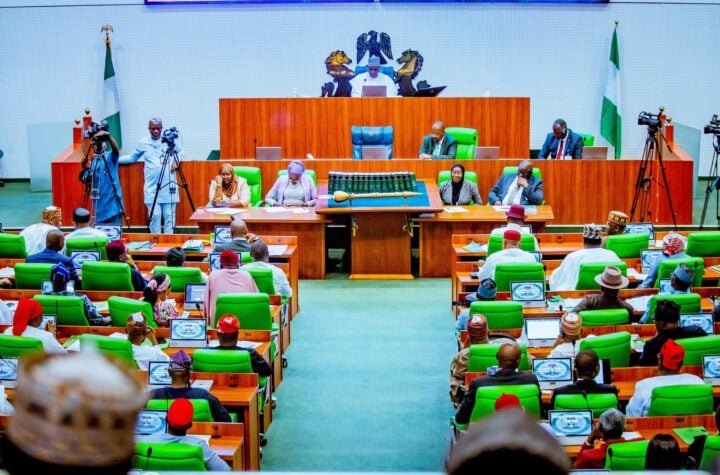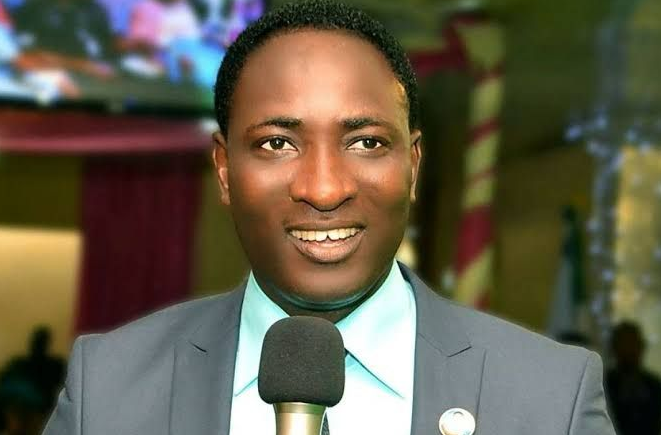BY MOHAMMED T. ABIODUN
When the APC formed government in 2015, it came with a goal to tackle poverty and provide jobs to Nigerias boisterous and ever blooming youth population. It had a tough job at hand. The Buhari led government, through the office of the Vice President, led by Professor Yemi Osinbajo deployed the N-Power programme as a means to reach hundreds of thousand of Nigeria’s unemployed youth, provide them with a paid employment while setting the path for them to develop skills, exit the programme and either be employers of labor or get recruited into better jobs.
In its commencement, 500,000 young Nigerians were recruited into the programme. They did not know any god-father. They simply took exams, passed, and were recruited. This was by itself one of the country’s firsts: a job scheme of the Federal Government that put half a million persons into paid employment did not become fodder for politicians to place their boys into government work. It was unbelievable.
The beneficiaries were stunned as they were excited. The next couple of years was transformational for them. Just as it was transformational for all the beneficiaries of the Buhari Social Investment Programmes.
Within the first two years of the programme, over a thousand Nigerians had passed through the various N-Power components. They were tooled with skills never had before, and a crucial experience to fill their Curriculum Vitaes. Within the same period, many of them, a handful had in fact exited. Having armed themselves with new skills and even financial resources, they branched out to get better employment or set up their own businesses.
Advertisement
The N-Power Programme was not a perfect one. But it was a huge success in turning around the fortunes of millions of Nigerians who benefitted from the programme either directly or indirectly.
Some challenges faced included a negligible amount of the beneficiaries not showing up at their places of primary assignment or having gotten recently employed, refused to officially exit the programmes. The Ministry of Humanitarian Affairs did not let this handful to soil the good work done. It swiftly partnered with the States and Local Governments to appoint Focal Persons to monitor the activities, progress and performance of programme beneficiaries and even make recommendations for the Ministry to suspend non-performing beneficiaries.
In 2019, President Muhammadu Buhari, in the wisdom of institutionalising the programme, created the Ministry of Humanitarian Affairs and placed the National Social Investment Programmes, which included the N-Power, Home Grown School Feeding Programme, Conditional Cash Transfers and Government Enterprise and Empowerment Programme (GEEP), under the supervision of the Ministry. Further to this, today, these programmes do not hang without institutional or legal backing as they once were when the Buhari administration commenced its tenure—they now have the legislative backing that has provided them with the agency to be institutionalised, and build on the foundation that has been laid over the past six years.
Advertisement
In the terminal days of former President Muhammadu Buhari’s tenure, he assented to the National Social Investment Programme Agency Bill, thus creating the agency, and giving it a much desired autonomy and institutionalisation for optimum functionality and efficiency. It cannot be denied that the President Buhari administration put up the country’s first, most prominent, most notable and most remarkable Social Investment Programme ever known in our history. It impacted the lives and well-being of millions of Nigerians. This cannot be gainsaid. It behoves on his predecessor, President Tinubu who is of the same ilk and party to build on this foundation that has been established.
Dr. Betta Edu, the Honorable Minister of Humanitarian Affairs is saddled with the oversight of this agency. Over the past few months that she has taken over the mantle to manage the affairs of the Social Investment Programmes she has spent more time criticising the work done, than acknowledging the outstanding achievements these programmes have achieved.
This may not come as a surprise to those of us who have been in the APC since 2013—when our great party was formed. We toiled and built, only for an impostor to eat where she did not sow, and become a critic of our hard work. Shame.
Betta Edu, a former PDP member who during her sojourn with that failure of a party was a vehement critic of the APC. Worse, she even accused the leadership of the Buhari administration of being murderers during the EndSARS saga. This agent of that sinister party has found her way to our fold and instead of upholding our values and honouring the good work that she has met on ground, has turned to become a critic of the hard-work and commitment those who fought for the party’s victories have achieved.
Advertisement
Where was Betta Edu, when in 2019 the All Progressives Congress launched it’s second general election campaign against her party and used the successes achieved by the Social Investment Programmes as the anchor of its request for reelection?
Where was Betta Edu when the boast of every APC member in the past eight years was the impact of the Social Investment Programmes in the lives of millions of Nigerians?
I can tell you where she was: She was in the bosom of her party PDP, frolicking in corruption and failure. It is unfortunate, even disrespectful that as a new entrant into our party she has the guts to attack the achievements of the party because she smuggled her way into our party and was unfortunately made a Minister.
Yes, the N-Power, and the entire programmes under the Social Investment Programmes were imperfect. Heck, no programme ever implemented by any government is perfect. But we cannot discountenance the achievements that the programmes made in the last eight years. Those are a ready foundation that the Tinubu government must build upon.
Abiodun, is a historian and writes from Abuja.
Advertisement
Add a comment






